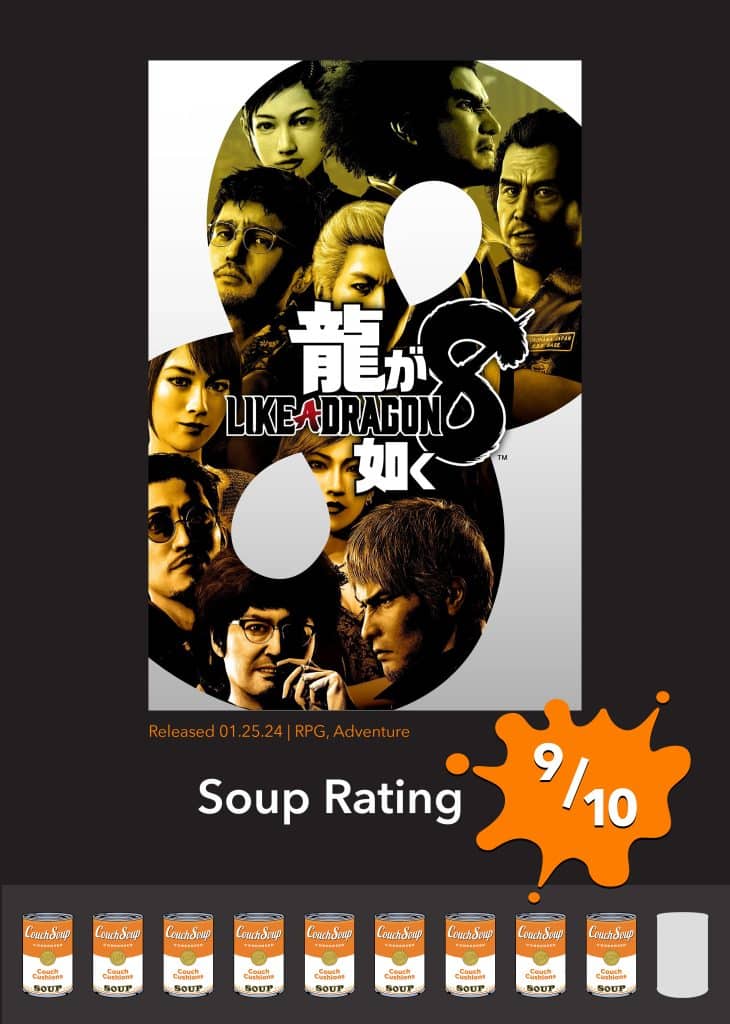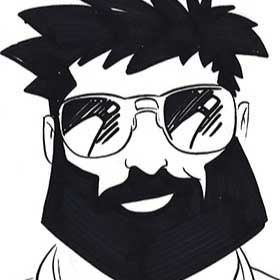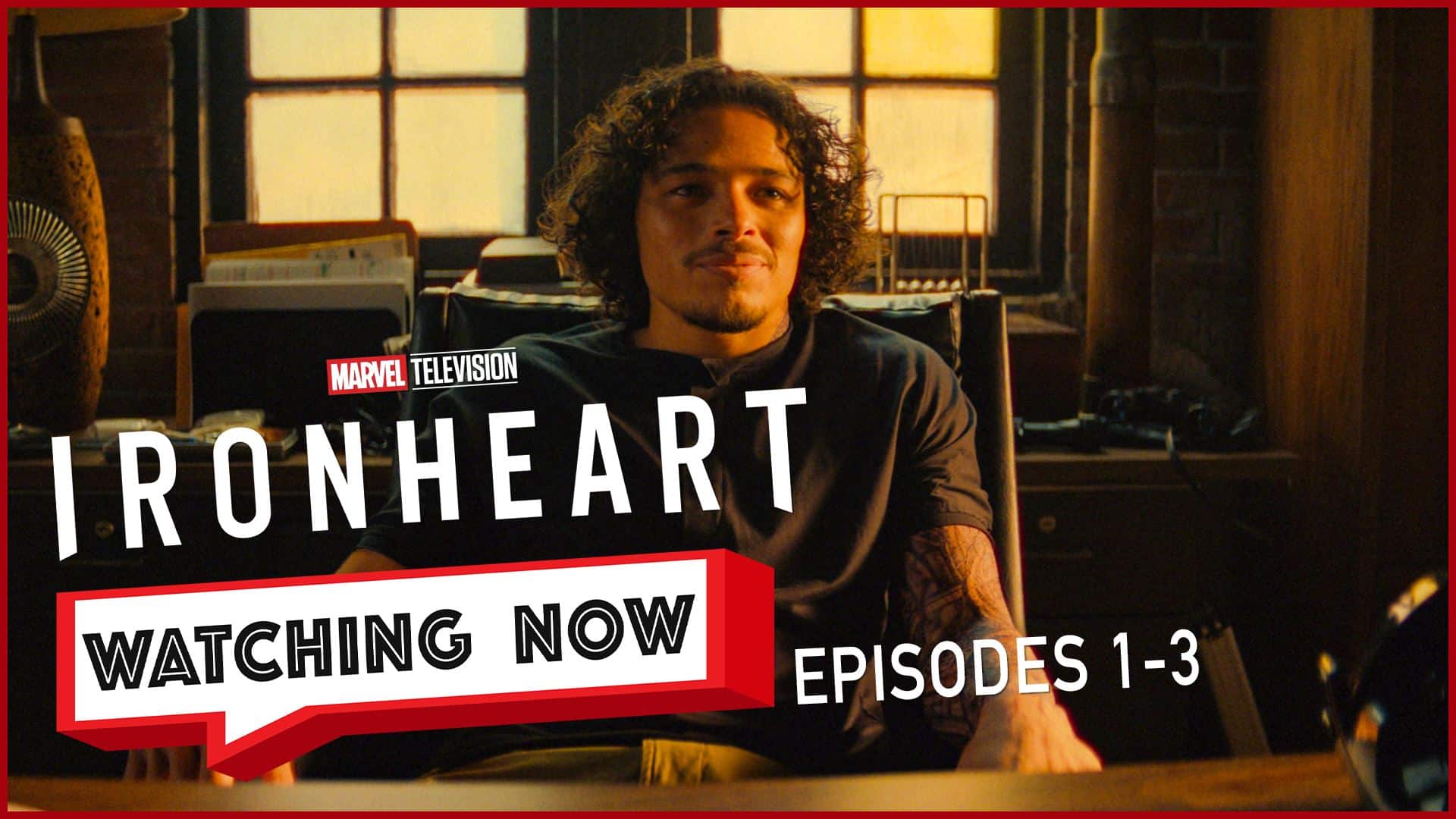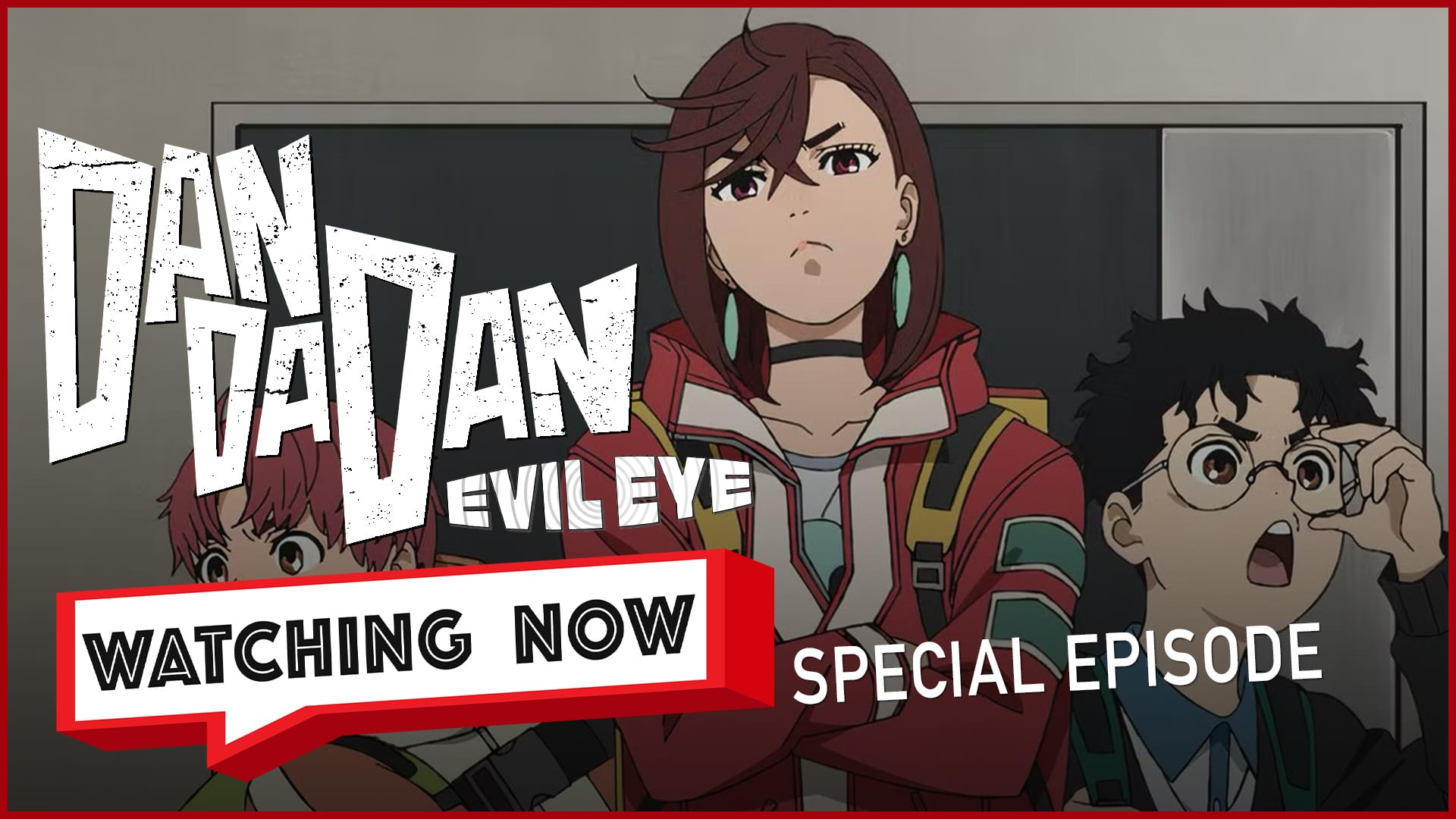- Home
-
Games
-
Movies & TV
-
Videos
- Comics & Books
- Podcasts
- Store
- Who We Are
- ---
- Login
- Account
- Our Circle
- Contact Us
- ---
- WANT TO CONTRIBUTE?
- Privacy Policy
- Terms of Service
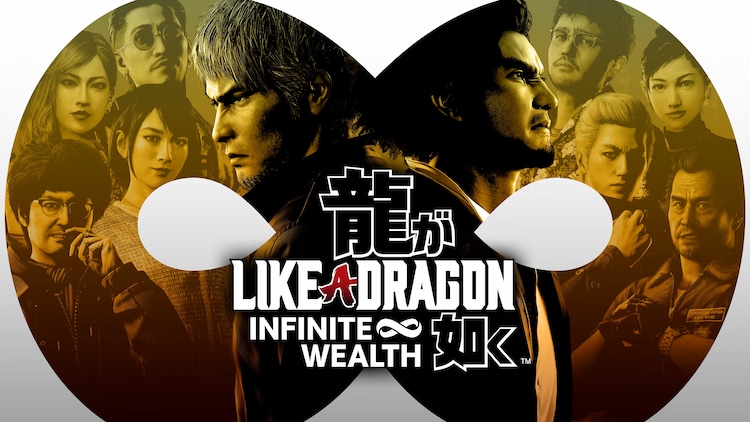
Like a Dragon: Infinite Wealth, affectionately nicknamed “Yakuza 8”, is the newest in the Ryu Ga Gotoku series of games from my nostalgic darling company, SEGA. A brief overview of the series is that they consist of gritty, emotional, and well-detailed crime dramas filled with betrayal, politics, and underworld intrigue, which forms the main story. On top of this, the sub-stories are full of zany and wacky Simpsons-style antics, moral heartwarming tales, and an over-abundance of addictive content. This game features two protagonists: Kazuma Kiryu, who was the series protagonist until the series hard-swerved from beat-em-up to turn-based combat, and Ichiban Kasuga, who was introduced as the new protagonist for the shift in gameplay.
Warning: after this point, we will be delving into spoilers for the entire Yakuza and Like a Dragon series.
Infinite Wealth finds itself in an interesting position in the franchise. Coming off the heels of two games, the first being Like a Dragon and the other being Like a Dragon Gaiden: The Man Who Erased His Name. This game serves as the climax to both these stories. Both men, stuck in their own personal ruts, spend the majority of the story learning to love life again in the island state of Hawaii and dare to tackle its vast criminal empires to save the life of an old woman with a mysterious past. A perfect setting for such a soul-searching game.
The story thus becomes a connecting line between the two, with Kiryu coming to terms with the end of his life fast approaching and Ichiban finally getting to decide his own life, having spent so long of it mired in prison, and Yakuza politics. What this leads to is the most emotional game in the entire series, with both characters’ personal journeys leaving me with tears in my eyes at points. I have no doubts that the game pulls out every effort it can to make this a love letter to the entire franchise, using its vast history to solidify Kiryu and contrast his life with Ichibans’ in a satisfying way.
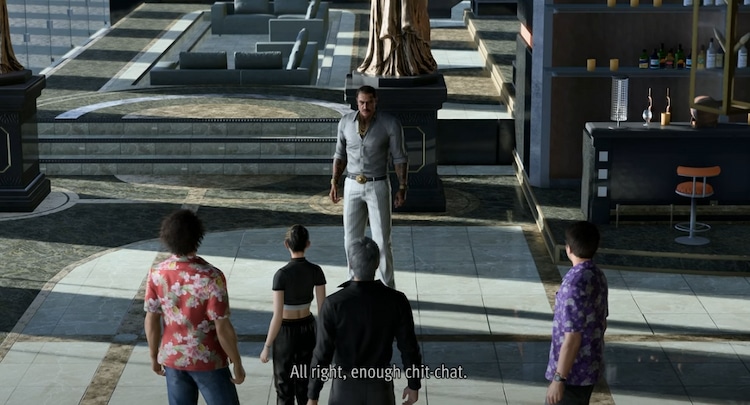
Sub-stories have far more goofy and funny scenarios on Ichibans’ side but also provide very emotional beats that show the connection these characters have with the world outside of the criminal underbelly. Would it surprise you if I told you the most intensely emotional substories involve a bunch of gangsters in diapers who ride around in strollers? The game goes out of its way to loop the most absurd premises into heartwarming stories. But at the same time, it really tries to teach. One of my favorite three-part sub-stories was based around the daily routine of a lifeguard and how much respect the profession deserves due to the risk and diligence required. It’s very cathartic in that way; you come away from this game emotionally enriched and also a bit more world-savvy too.
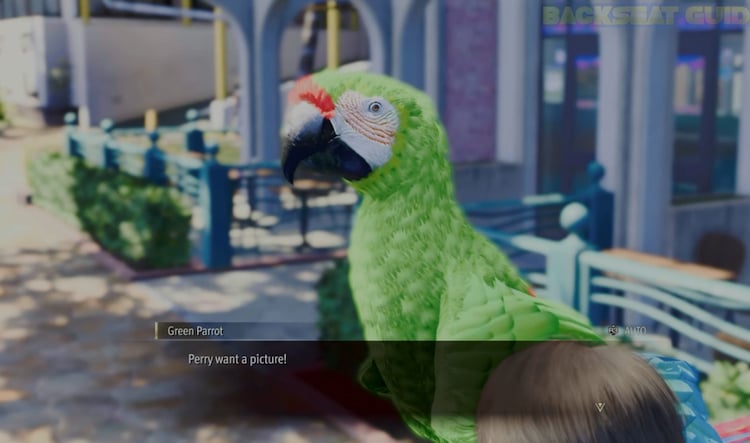
Kiryu and Ichiban take center stage as the main focus of the story. Kiryu continues his trend of brute forcing his way into everyone’s business and finds success through his sheer determination and grit. In my opinion, Kiryu has never been more relatable and cool. Whenever we played as him in previous games, he was an invincible juggernaut, but here we get to see the full impact of his life and lead him through a journey where he just might accept that his life wasn’t as harmful to those around him that he believes.
Ichiban, however, has to learn to find his own way in life, without his boss’ guidance or plans, and to determine his own path while trying to find his estranged mother. Hawaii is not kind to Ichiban as he regularly finds his naivety leads to people taking advantage of him. This game is a harsh reality lesson for Ichiban, giving him trial after trial, but also a hopeful one. It’s clear that the torch is well and truly passed in this game from Kiryu to Ichiban, and honestly, I want to see Ichiban use his leadership skills to their fullest, with the number of people he can rally to his cause. His personality is possibly the most infectious I’ve ever seen from this series, and the writers deserve a lot of praise.
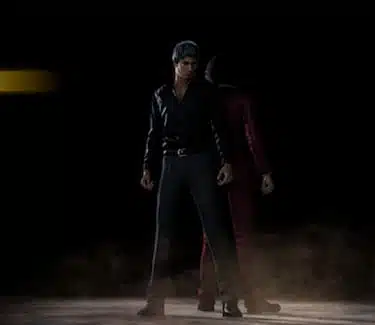

New characters are deep and loveable. Tomizawa and Chitose are strong characters with their own styles; Chitose’s fighting style feels like she could have come straight from Tekken, with an amazing storyline revolving around constantly betraying everyone, whilst Tomizawa boasts a hilarious taxi-based moveset, with a relevant backstory to the games moral themes.
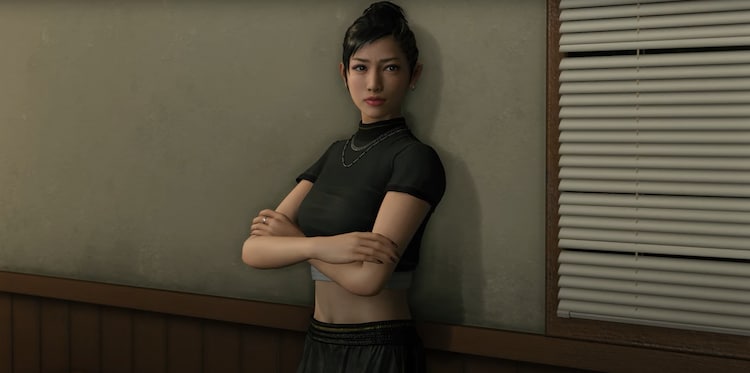
Old characters from Like a Dragon return. Not much has changed about all of the returning cast, but they do gain access to the new classes. One complaint I had was that older characters are just kind of there, with no agency of their own. The game decided to focus far more on the newcomers. If given a choice, I would take the new storylines over rehashing old ones; I guess I just didn’t really like the stagnant nature of their participation. Saeko, in particular, gets a massive character assassination, which makes her dislikeable for very little reason. Her relationship with Ichiban is destroyed by bad writing decisions in an attempt to make it plausible for game play elements to happen, such as a dating minigame for Ichiban. The backfire of this means she effectively ghosts him for an entire year despite the events of the last game making them best friends for life. Her drink links with Kiryu don’t help this as they make her seem like she does still like him, whilst simultaneously hurting him for a long period of time.
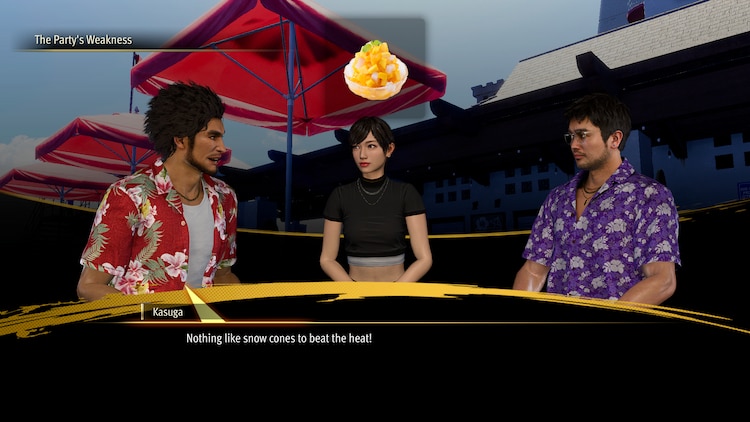
Together, these two characters’ stories coalesce in an explosive storyline involving the criminal underworlds of both Japan and Hawaii, With Yakuza, American gangs, religious cults and Chinese triads all getting in on the mix. You’ll find a wide variety of adversaries, but one of them stood out from the rest.
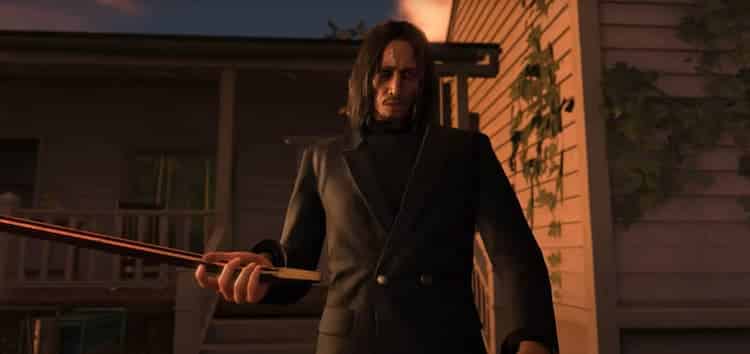
Fledgling Yakuza boss Yukata Yamai is established as a dangerous force from the start. With the ongoing search for Ichiban’s mom, Yamai proves himself to be a tenacious, instinctual and dangerous enemy, employing vicious tactics, such as burning down a forest you’re currently in. But as the story progresses, he becomes a mirror for Ichiban, going to extreme lengths to fulfill his goals. Charismatic to a fault to those who work under him, and surprisingly honorable when it comes to a pinch.
We can see that Yamai is a perfect lawful evil counterpart to Ichiban’s chaotic good self, and through this, we get one of the best Yakuza rival characters since Goro Majima, in my opinion. His backstory is deep and enriching, and his motives are not so black and white. Towards the end of the story, I felt nothing more than a wish for Yamai to become either a party member in the next game or Ichibans’ full-on antagonist. Either is fine; I don’t mind SEGA!
Infinite Wealth’s gameplay takes many forms. You have your turn-based combat fueled by Ichiban’s love of the Dragon Quest series, but much improved from the last installment. Enemies make better use of status effects, enemies are more adapted to the system, and classes get more than enough skills to make all of them stand out amongst themselves. Additionally, Kiryu gains a playstyle based on his origins, with a special attack that changes the gameplay to a beat-em-up in the middle of combat. I had the most fun in this game using Kiryu’s absurdly strong personal class, “Dragon of Dojima”. The best part of it is, the class gets stronger the more time you spend on Kiryu’s personal quests, and coming to terms with his full life from his perspective, a brilliant melding of story and gameplay elements. If you couldn’t tell, I found this aspect insanely satisfying!
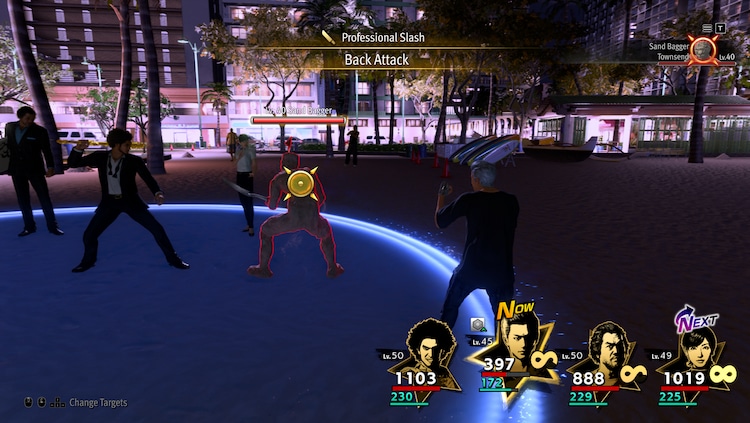
But this is not the only gameplay you’ll find in infinite wealth. There is a wide range of mini-games like Mahjong, Sega Bass Fishing, regular fishing, and the terror that was the dating simulator. You’ll also find complete standalone games within this game. For example, the “Sujimon” section is a thinly veiled Pokemon parody where you can recruit the various goons you defeat and use them in battle akin to Pokemon Masters EX gameplay. There’s an entire storyline and a robust system to train them.
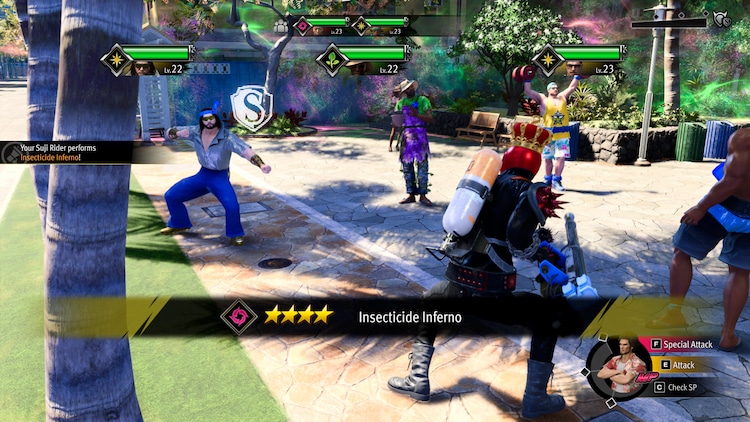
It’s time to talk about Dondoko Island, a complete and addictive Animal Crossing parody. You wash up on the beach, find large goofy animal mascot characters, and get to build your own city on this deserted island, except you have to clear out all the trash and kick out all the weird Captain Pugwash rejects using it to dump their trash. You can make whatever you want and make money to use in the main game from it. If you finish the game and turn it into a five-star resort, you get a satellite laser attack for Ichiban, which is quite strong but costs a lot of mana. But this game on its own seems quite addictive outside of the main game benefits. It was still insanely difficult to find space for my giant shrine. I spent far too much time on this part of the game.
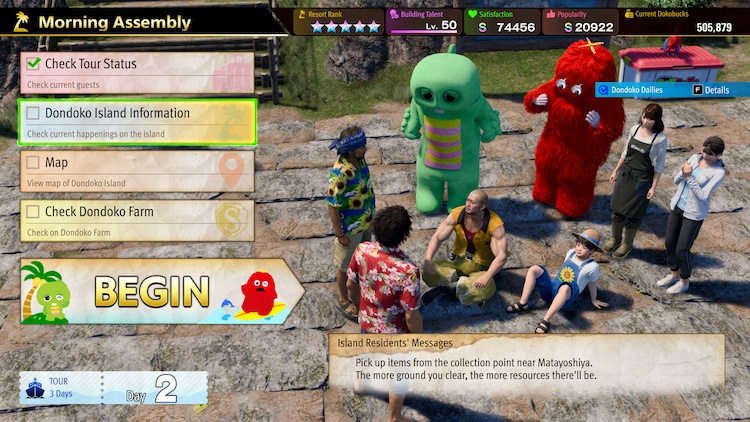
However many games this franchise gets, its musical strengths improve with each installment. Their library continues to bring a multitude of vocal tracks, all of which are complimented with fitting battle themes. I’m not sure if continued access to the series library of admittedly excellent vocal tracks can be purely merited to this title, but their inclusion is always welcome. You also get a Walkman with access to a small number of Sega and Atlus tunes to walk around town and listen too.
Outside of vocal tracks, though, you’ll find some impressive rock themes. I really couldn’t pin down the exact genre this game goes for. To my ears, it was a mix of pop, rock and dubstep with maybe a sprinkle of EDM. Sure, they were pretty funky bops and the Barracuda track stuck out for me, but the stationary music during cutscenes and substories was really satisfying.
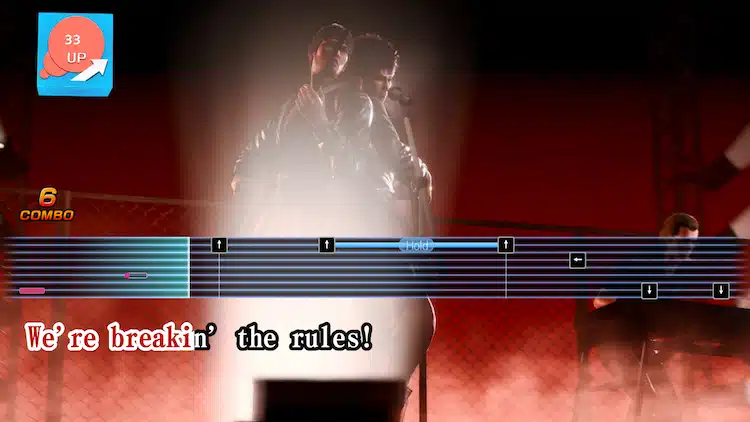
So, as is typical of me, my opinion of graphics is that I don’t care if they’re low quality as long as they’re aesthetically pleasing. I would take Final Fantasy VII over the likes of a live service game copying and pasting the same tree. This game has some really disturbing designs for enemies, which get a visceral reaction from me, but when it counts, the game has a dark ambiance, mired in the corruption within its intimidating enemies and stakes. All tangled within the beautifully made Hawaii map you’ll spend the majority of your time in. They put the effort in where it counts, and I never found the environments repulsive; I just questioned some design choices, like the uncomfortable amount of effort put into oiled-up enemy types. No more complaints from me. It was an immersive experience that I don’t regret putting 90 hours into.
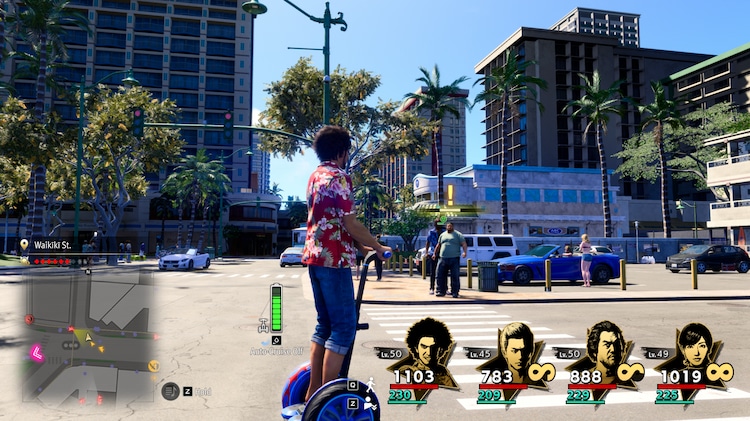
I found myself so immersed in this game’s map; everywhere I went, there was something to do. The sujimon section running alongside the main story and substories made it a nightmare for anyone who gets easily distracted. You’ll set out to do a main mission, and three hours later, you’re spamming the fishing minigame on some random beach. You’ll never escape this game’s content as long as you’re playing it, and without a concerted effort, you’ll find you’ve ignored the 20-hour main story completely right up until the 100-hour mark.
I would like to say that you choose how much you play this game, but the sheer amount of stuff to do is a vortex that sucks your attention in and keeps you entertained with a love story between a crawfish and a hermit crab. This game goes from gameplay strength to gameplay strength incredibly fast, and I would say it’s the best Like a Dragon game to ever be made, except the problem remains that Yakuza 0 exists. I can tell this game wants to use it’s two protagonist style and create another masterpiece like that one, and while the content amount is astounding, the quality of that game was just ascendant.
Like a Dragon: Infinite Wealth misses being a timeless classic by a very small margin. It borrows from too much else, and it loses something in return for its reliance on other media. This game is the perfect example of why quality over quantity is paramount, as I felt that 10% of the content could have been left out and replaced with something to enrich the rest of the game such as the Sicko snap minigame, or the overabundance of random encounters you’re forced into in the world map. All in all, Infinite Wealth is an incredibly rewarding experience that will leave you feeling emotionally and culturally enriched whilst leaving you with a sense of closure on one of video gaming’s most iconic characters.
